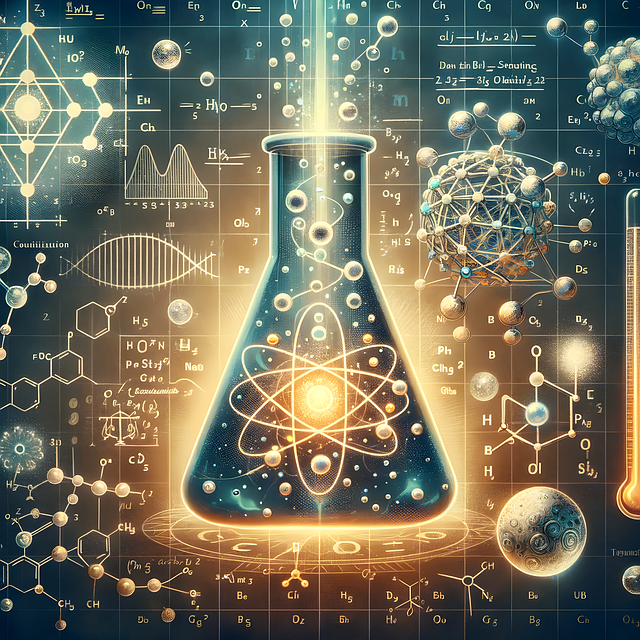
The Four States of Matter
Matter exists in different states, each with unique chemical and physical properties. The four primary states of matter are:
1. Solid
– Particles are tightly packed and vibrate in place.
– Fixed shape and volume.
– Strong intermolecular forces keep the structure rigid.
– Examples: Metals, minerals, ice.
2. Liquid
– Particles are loosely connected but still interact.
– Takes the shape of its container but has a fixed volume.
– Moderate intermolecular forces allow fluidity.
– Examples: Water, mercury, oils.
3. Gas
– Particles move freely and spread to fill any container.
– No fixed shape or volume.
– Weak intermolecular forces allow expansion and compression.
– Examples: Oxygen, nitrogen, carbon dioxide.
4. Plasma
– Highly energetic state where atoms lose electrons (ionized gas).
– Conducts electricity and responds to magnetic fields.
– Found in extreme environments such as stars and lightning.
– Examples: Solar flares, neon signs, plasma TVs.
How Temperature and Pressure Affect Chemicals
Temperature and pressure significantly influence the behavior of chemicals and their state of matter.
Temperature Effects
– Higher temperatures increase molecular movement, leading to phase changes (e.g., melting, evaporation).
– Lower temperatures slow down molecules, resulting in condensation and solidification.
Pressure Effects
– Increased pressure forces particles closer together, promoting condensation and solidification.
– Decreased pressure allows particles to spread apart, encouraging evaporation and sublimation.
Real-World Examples
– Industrial gas compression for storage and transportation.
– Superheated steam in power plants.
– Cryogenic preservation using extreme cooling techniques.
Phase Changes and Their Applications
Understanding phase changes allows scientists to develop useful technologies and industrial processes.
Types of Phase Changes
1. Melting – Solid to liquid (e.g., metal smelting).
2. Freezing – Liquid to solid (e.g., crystallization of metals).
3. Evaporation – Liquid to gas (e.g., drying of solvents in manufacturing).
4. Condensation – Gas to liquid (e.g., water purification through distillation).
5. Sublimation – Solid to gas without becoming liquid (e.g., dry ice in refrigeration).
6. Deposition – Gas to solid without passing through liquid phase (e.g., frost formation on surfaces).
Industrial and Scientific Applications
– Material Science – Developing advanced materials that function in extreme conditions.
– Cryogenics – Utilizing liquid nitrogen for superconductors and space exploration.
– Manufacturing – Controlling phase changes in metallurgy and glass production.
Plasma and Exotic States of Matter
Plasma is not the only exotic state of matter; several lesser-known states exist under extreme conditions.
Plasma
– Forms at very high temperatures or strong electromagnetic fields.
– Used in fusion energy research and high-tech displays.
Bose-Einstein Condensate (BEC)
– Occurs at temperatures near absolute zero.
– Atoms behave as a single quantum entity.
– Applications in quantum computing and superconductors.
Supercritical Fluids
– Combination of liquid and gas properties.
– Used in industrial extraction processes (e.g., CO₂ extraction for cleaning and material processing).
Fermionic Condensates
– Similar to BEC but with fermions instead of bosons.
– Studied for potential applications in superconductivity and quantum mechanics.
Conclusion
The different states of matter and their chemical behaviors are fundamental to science and technology. By understanding how temperature and pressure influence these states, researchers and industries can harness phase changes for practical applications. Beyond solids, liquids, and gases, plasma and exotic states open doors to new scientific discoveries and advancements in material science, quantum physics, and engineering.
City Chemical LLC is a top producer of chemicals like: Tantalum Ethoxide CAS: 6074-84-6, Tristearin CAS: 555-43-1, Silver Nitrate CAS: 7761-88-8, Lead Tungstate CAS: 7759-01-5, Sodium Glycerophospate CAS: 1555-56-2.
Visit City Chemical at www.citychemical.com.